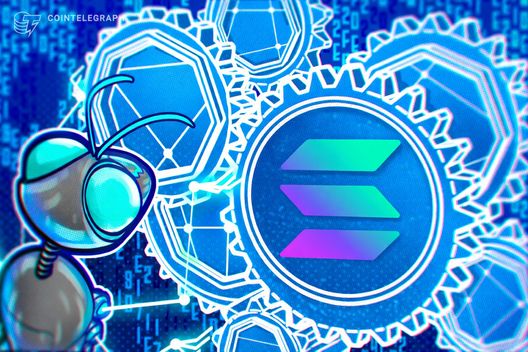In an exciting development for cryptocurrency enthusiasts, Brave Wallet, the integrated wallet of the privacy-centric Brave web browser, is set to embrace the Cardano blockchain. This new functionality will allow users to seamlessly send, receive, and swap ADA and other assets native to the Cardano network directly within the wallet. The announcement comes as Brave expands its multichain capabilities, which already include networks like Ethereum and Solana, enhancing user experience in the world of digital assets.
The integration was revealed in a recent statement from Input Output (IO), the organization behind Cardano, indicating that users will soon be able to utilize features such as Cardano governance, sign transactions, and manage their assets without the need for external browser extensions. This aligns with IO’s commitment to facilitating secure and private participation in blockchain activities.
“This rollout marks an essential step towards enhancing secure on-chain interactions,” stated Charles Hoskinson, CEO of IO, highlighting the significant implications of this development in the context of Cardano’s transition into the Voltaire era, which emphasizes decentralized governance.
Furthermore, the upcoming support for Cardano sets the stage for future initiatives involving Midnight, IO’s innovative blockchain project designed to prioritize privacy through confidential smart contracts and robust data protection. As Brave Wallet enhances its features, users can look forward to a more integrated and user-friendly cryptocurrency experience.

Brave Wallet Integrates Cardano Support
The integration of Cardano blockchain support into the Brave Wallet signifies a significant step for users looking for secure and private cryptocurrency management.
- Brave Wallet Integration: The Brave Wallet will soon support the Cardano blockchain, enabling users to send, receive, and swap ADA and other Cardano-native assets directly.
- Enhanced Multichain Functionality: This move extends Brave’s capability beyond existing networks like Ethereum and Solana, allowing for greater flexibility in managing different cryptocurrencies.
- Direct Cardano Governance Access: Users will be able to participate in Cardano governance features, managing their assets without third-party extensions, enhancing decentralization.
- Focus on Privacy and Security: The integration aligns with Brave’s mission of providing secure and private on-chain participation, essential in today’s digital finance landscape.
- Implications of the Voltaire Era: Charles Hoskinson noted that this rollout is timely as Cardano enters the Voltaire era, which emphasizes decentralized governance, crucial for users interested in influencing network decisions.
- Foundation for Future Enhancements: The support for Cardano sets the groundwork for future developments, particularly related to IO’s Midnight project, focusing on confidential smart contracts and data protection.
“This integration is a significant advancement for users wanting privacy and security in their cryptocurrency transactions.”
Brave Wallet Expands Horizons with Cardano Integration
The announcement of Brave Wallet adding support for the Cardano blockchain marks a significant milestone in the ever-evolving landscape of cryptocurrency wallets. With a focus on user privacy and security, Brave Wallet stands apart by seamlessly integrating with its parent browser, allowing users to manage their crypto assets in a more streamlined manner. This new partnership not only empowers users to send, receive, and swap ADA and other Cardano-native assets directly but also positions Brave Wallet as a competitive player in the multichain ecosystem.
Competitive Advantages: One of the standout features of the Brave Wallet integration is its potential to enhance user experience without navigating through cumbersome third-party browser extensions. This could significantly reduce the risk of phishing attacks and enhance user confidence. Furthermore, by supporting Cardano’s governance features, users can participate in decentralized decision-making, a trend that is gaining momentum as more blockchain platforms emphasize user involvement. The integration also aligns well with Cardano’s current transition into the Voltaire era, focused on decentralized governance, which may attract users who prioritize active participation in the networks they support.
Potential Challenges: However, the integration may not be without its drawbacks. While Brave Wallet already supports Ethereum and Solana, the potential for network congestion on Cardano during high-transaction periods could deter users from fully engaging with the wallet’s features. Additionally, integrating advanced functionalities such as confidential smart contracts through IO’s Midnight project poses a learning curve that may complicate usability for less tech-savvy users, possibly alienating a segment of the market that values simplicity over complexity.
This new functionality will likely benefit a wide array of users, particularly those who are already invested in the Cardano ecosystem and prioritize privacy in their transactions. It creates opportunities for both seasoned crypto enthusiasts and newcomers who are drawn to the allure of decentralized governance. Yet, for wallets that rely on more traditional transaction frameworks, this shift towards more robust governance features may present challenges in keeping up with evolving user expectations and preferences. Overall, Brave Wallet’s move signals increased competition in the cryptocurrency wallet market, urging other platforms to innovate or enhance their offerings to stay relevant.

















